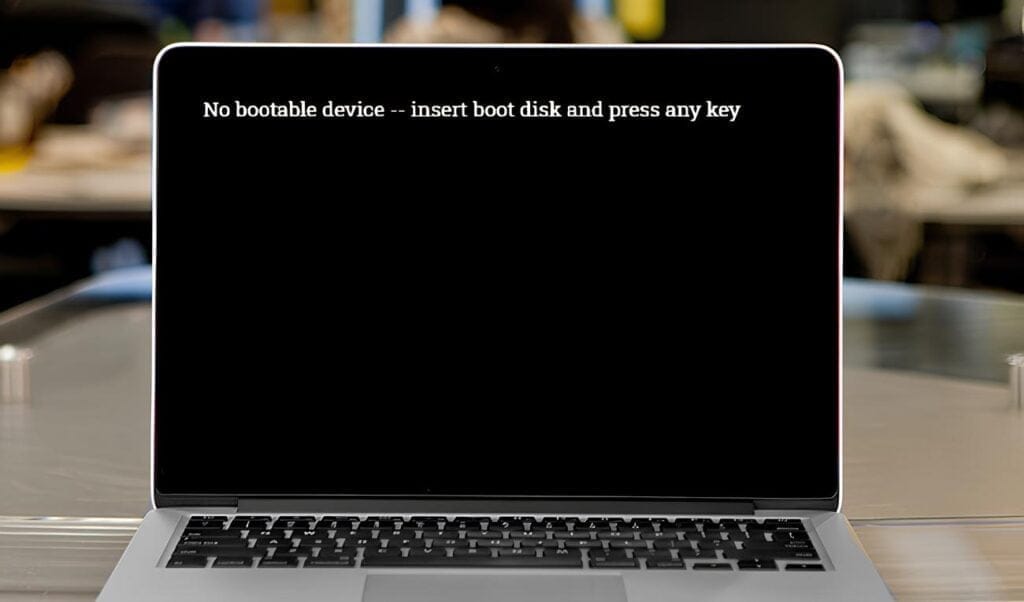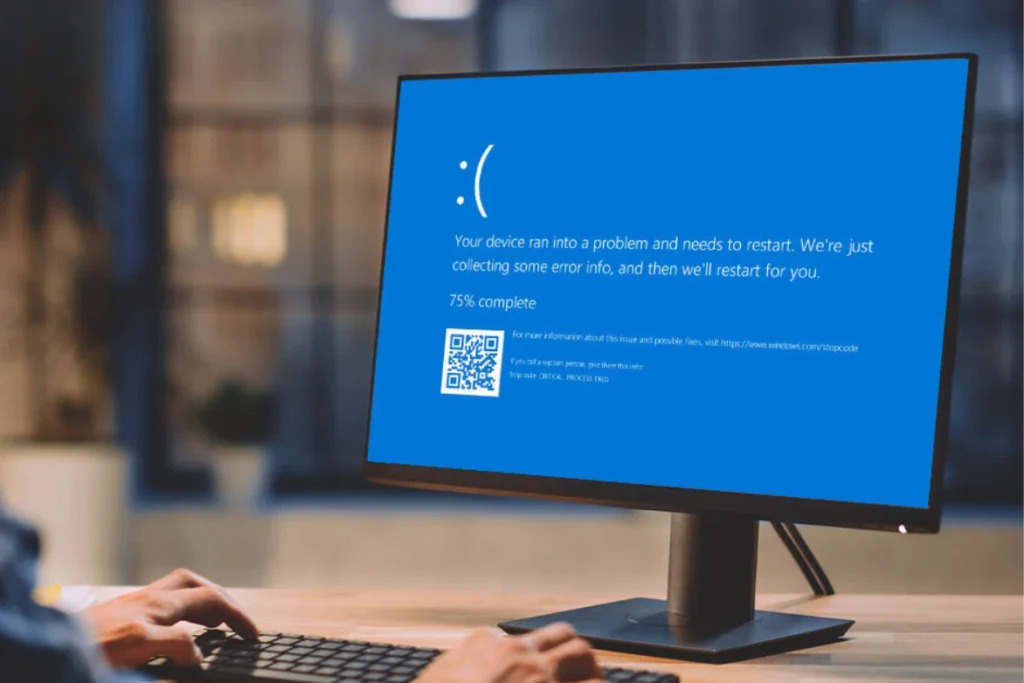Like an illness, the symptoms of hard disk failure may be subtle at first, but ignoring these warning signs can lead to catastrophic data loss on your Windows or Mac computer.
What are the signs of a failing hard disk ?
- What is the purpose of the hard disk in a computer?
- No Bootable Device : Hard disk not detected
- BSOD: Windows Blue Screen of Death
- Unusual noises : humming or clicking
- Significant slowdown and frequent error messages
What is the purpose of the hard disk in a computer?
The hard disk in a computer is a component that serves as a permanent storage memory for data. It retains all the files, programs and operating systems needed to run the computer, even after it has been switched off.
It can store documents, photos, videos and other types of files.
When your hard drive fails, it’s total panic : the computer can no longer access data, and the operating system is no longer accessible. Here are the main faults you may encounter with a failed hard disk.
No Bootable Device : Hard disk not detected
The No Bootable Device error is a frustrating and often anxiety-provoking message that appears when your computer fails to detect a hard disk containing a valid operating system or boot device. This means that your computer can’t find the files it needs to boot properly, and may be the result of a number of potential problems.

The most common cause of this error is a hardware problem with the hard disk itself. This may be due to a faulty connection between the hard disk and the computer’s motherboard, a damaged or failed hard disk, or problems reading data from the disk. In some cases, BIOS errors or incorrect boot parameters can also cause this error message. There are a number of options for solving this problem:
- Check the connection between the hard disk and the motherboard.
- Reset BIOS parameters to default values.
- Check and modify the boot order in the BIOS.
- Replace the failed hard drive with a new one.
BSOD: Windows Blue Screen of Death
The Blue Screen of Death (BSOD) is a dreaded event for many Windows users. This screen appears when the Windows operating system encounters a critical error it can’t handle, resulting in a sudden computer shutdown. Among the many potential causes of this phenomenon, a failing hard disk is one of the most serious and worrying.

A failing hard disk can lead to a variety of symptoms, including data read/write errors, excessively long loading times, unusual noises emanating from the disk, or frequent system crashes. When the hard disk reaches a critical state, it may cause a BSOD, signalling a serious hardware failure.
There are many reasons why a hard disk can fail. Among the most common are normal wear and tear due to prolonged use, physical shocks or sudden movements affecting the drive, electrical current fluctuations, overheating, or even manufacturing defects.

Unusual noises : humming or clicking
When a mechanical hard disk drive encounters problems, it may emit unusual noises such as whirring or clicking. These sounds are often a sign of impending or already advanced hard disk failure.
- Humming : These are often associated with a hard disk drive in normal operation. However, when they become more audible or constant, this may indicate a problem. Constant humming may be a sign of a malfunction in the hard drive motor. This may be due to excessive wear on the drive. If you hear abnormal humming, stop using the hard disk immediately and back up your important data before it’s too late.
- Clicking: These are distinctive and often alarming noises which usually indicate a serious problem with the hard disk. This sound can be caused by the read/write heads trying to move over faulty sectors of the disk, resulting in irregular mechanical movements. Clicking can also be the result of a malfunction in the read/write arm or a problem in the positioning mechanism. If you hear rattling, switch off your computer immediately to prevent further damage to the hard disk, and seek data recovery solutions as soon as possible.
These noises are often warning signs of impending failure. Avoid using the defective hard drive as much as possible to limit further damage. Consider replacing the defective hard disk with a new one to avoid data loss.
Significant slowdown and frequent error messages
A computer that is slow and error-prone during basic use may be the sign of a faulty hard disk. The hard disk is a component of your system, responsible for data storage and access. Problems at this level can lead to widespread malfunctions and difficulties in performing even the simplest tasks.
- Hard disk fragmentation : This can considerably slow down data access times, leading to slowness when using your computer.
- Faulty sectors : Faulty sectors on the hard disk can prevent access to data and cause errors when reading or writing. These defective sectors may be the result of normal wear and tear or physical shock.
- Data corruption : Corrupted data on the hard disk can cause errors when used, resulting in program crashes and error messages.
